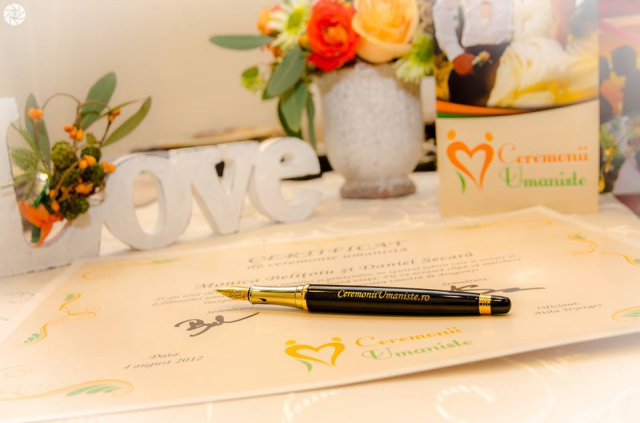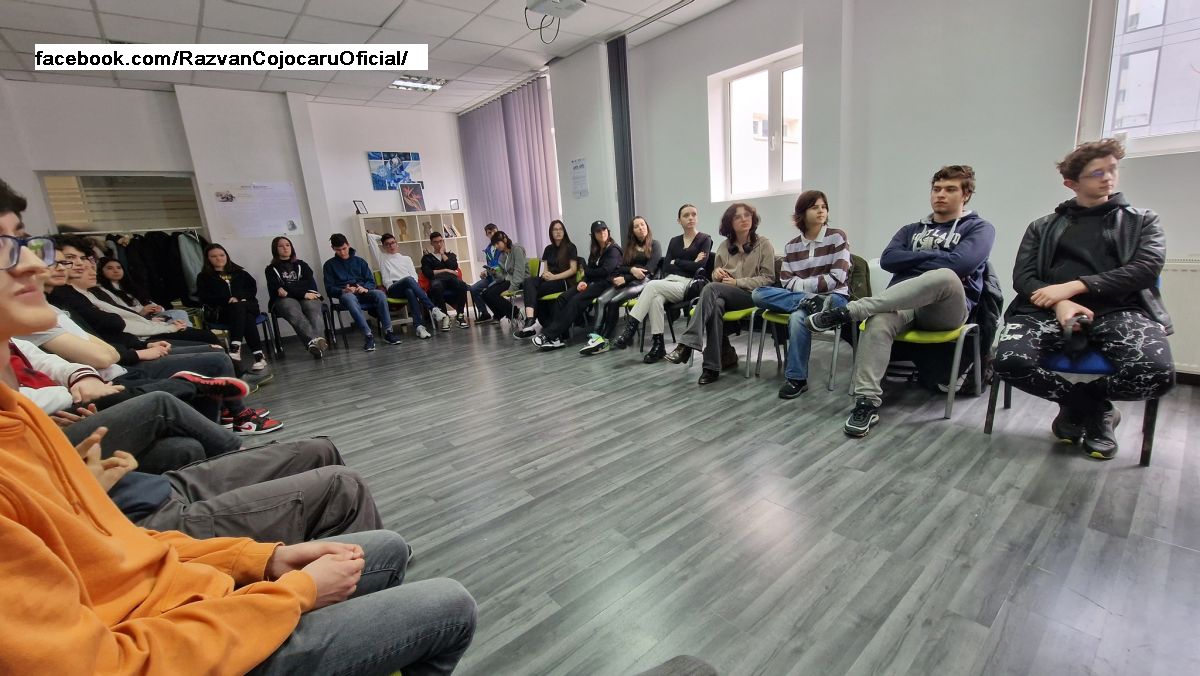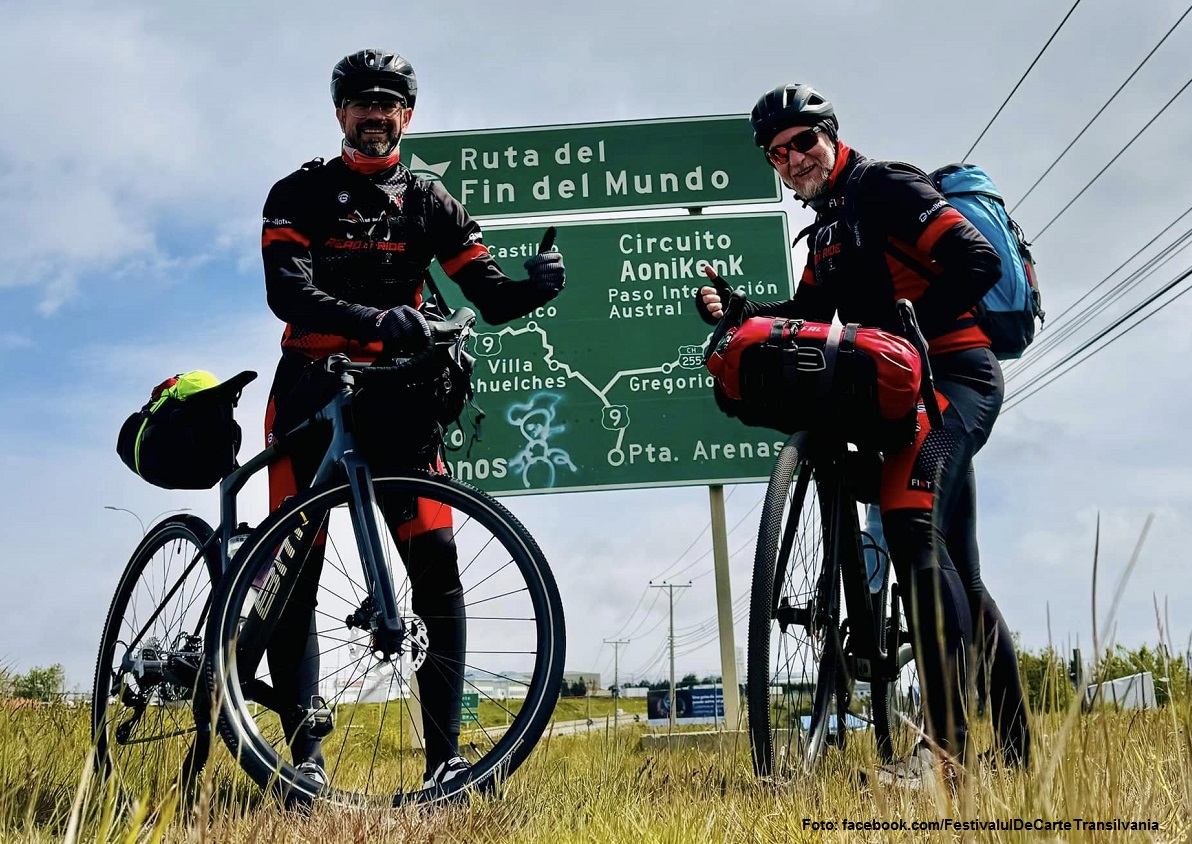Humanist ceremonies
Humanist ceremonies lack any religious component and are held by specially trained people.

România Internațional, 16.02.2014, 13:01
In early 2014, the Romanian media was writing about a new type of service provided by event organisers: humanist ceremonies. Lacking any religious component and held by specially trained people, these ceremonies are aimed at marking the most important events in our lives, such as marriages or the birth of a child. Monica Belitoiu is the spokeswoman for the Humanist Secular Association of Romania (in Romanian ASUR), which organises this type of ceremonies. She told us that the idea of setting up such a service came to her in 2012, when she got married:
Monica Belitoiu: “Neither me, nor my husband wanted to have a religious ceremony held in a church. We wanted something in the open air, a ceremony where we could say anything we wanted, exchange our own vows before family and friends. It was a very intimate ceremony, on the shore of a lake, where we also gave the party. The ceremony was held by a friend of ours, because there was no specialised service in Romania back then and we did not know who else to go to. It would have cost us too much to bring somebody from abroad and that person would not have been able to do it in Romanian. So we asked a friend, who we knew could speak very well in public and we told him what we wanted. He wrote his part of the speech in which he spoke about our love story, as he knew it from us, he said why he had accepted to do that for us and then my husband and I exchanged our vows. We exchanged the rings and then the MC congratulated us and invited everybody to do the same. We had got married at the city hall some time before, but you cannot call those 5 minutes a ceremony. Everybody liked the event, and our mothers shed a tear or two. Our grandparents, though, said we should have gone to a church, at least to make sure people wouldn’t gossip about it. Our friends were delighted and some of them, who intend to get married this year, will also have their own humanist ceremonies.”
Although it would be easy to think that humanism is just another type of religion, Monica Belitoiu explains that it’s more about of a certain attitude towards life:
Monica Belitoiu: “Humanist principles are about tolerance, understanding, cooperation, non-discrimination and equality. I believe that we only have one life to live and we are responsible for everything we do, and if we do something wrong, it’s our fault, we cannot blame fate. Also, if we succeed in something, it’s our merit and the merit of those people who have helped us. We don’t feel the need to follow a certain religion. However, we respect other people’s religious beliefs, we celebrate religious events with our parents and families, but that’s about it.”
As the guests at their wedding were extremely pleased with what they saw and started showing interest in the same time of ceremony for themselves, Monica and her colleagues from ASUR thought of establishing a specialised service to meet the demand. Helped by people who had already gained experience in organising humanist ceremonies, they developed a course for masters of ceremonies to hold services for non-conformist couples. Do you want a theme wedding, a wedding with characters from books or movies? Or, maybe you want to welcome your child into this world in an original manner. Well, all these are possible now, if you will just trust your imagination. Naturally, there are some limits to this, as our guest explains:
Monica Belitoiu: “We don’t do things that are religious in nature, we do not replicate religious masses, we do not read from holy books, we do not hold ceremonies of the Las Vegas type. We organise ceremonies for serious couples, who are sure they want to be together and want to have such a ceremony not just to add something extra to their party, but because they want to honour their love in a special way. Everybody needs to share their important moments with the loved ones, with friends and family, to tell them: ‘Look, this is the man or woman I love, whom I married and with whom I would like to spend the rest of my life. I promise we will love and respect each together.’ You feel the need to say: ‘This is my child, I’m proud of it, I will help and love it till the end of my life.’ Everybody needs to have these moments marked. I don’t believe that a ceremony can only be religious; it’s about feelings that everybody has, whether they believe in a God or not.”
Mixed couples who need a ceremony both in Romanian and in English seem to be very much attracted to ASUR’s offer. So far, eight such couples have chosen an MC for their ceremonial marriage. Another 10 are still thinking about this option. The first two weddings will be held on May 31st, in Bucharest. Before the ceremony proper, the couples will meet the MC, will talk about their story and what has brought them together and will provide enough information for the MC to write the speech. After the ceremony, the bride and groom will sign a certificate with a pen that they can keep. Ceremonies are purely symbolic, the certificate has no legal validity, it’s just a means of preserving the memory of their wedding. Apparently, the church was quick to react to this new type of ceremony as Monica Belitoiu said:
Monica Belitoiu: “Some time after we publicly announced that we provide such services, the priests reacted and said these ceremonies are not recognised by the church as they do not have grace from God. I don’t know if my definition of grace is that of the church. What we do is properly mark important moments in people’s lives, the way they want them to be.”






























